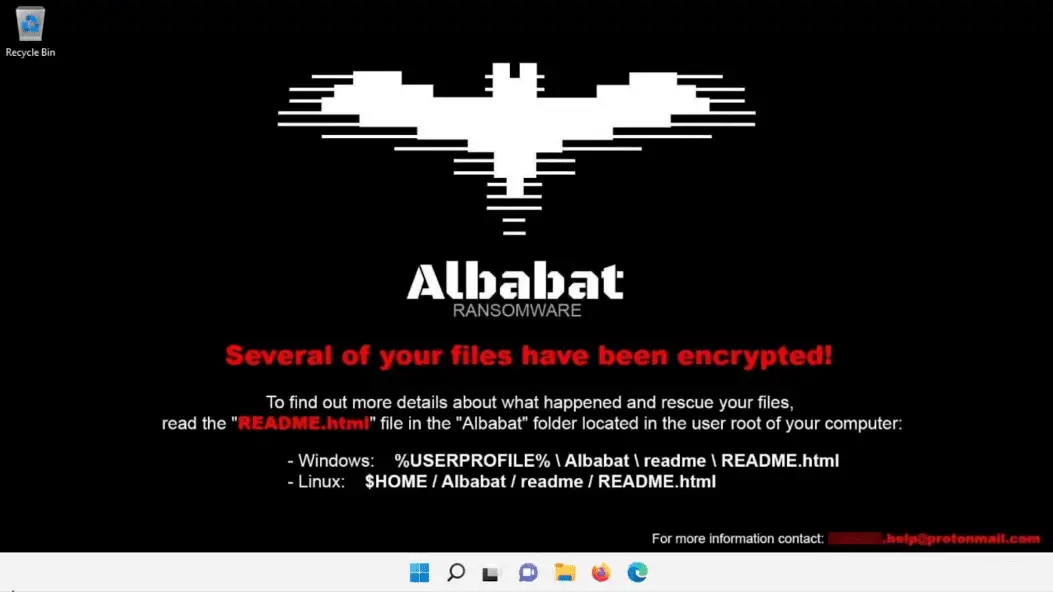From Games to Ransom: Albabat’s Deceptive Distribution Method Exposed

FortiGuard Labs detected the Albabat ransomware, also known as White Bat. First emerging in November 2023, this financially motivated variant has evolved rapidly, targeting companies and individuals primarily in countries such as Argentina, Brazil, the Czech Republic, Germany, Hungary, Kazakhstan, Russia, and the United States. Albabat’s unique distribution method involves masquerading as legitimate software like a fake Windows 10 digital activation tool or a cheat program for the Counter-Strike 2 game, thereby broadening its potential reach.
Albabat’s operation is deceptively simple yet effective. Once executed, it searches for files to encrypt, carefully avoiding certain file types to maintain system stability. Files encrypted by Albabat receive a “.abbt” extension, a signature of its presence. Notably, the ransomware also replaces the desktop wallpaper with its own, further asserting its control over the compromised system.

Desktop wallpaper replaced by the Albabat ransomware version 0.3.0
Interestingly, Albabat seems to have a global reach, with the ransomware samples indicating a primary focus on entities in multiple countries. It appears to be indiscriminate in its targeting, affecting anyone who inadvertently downloads the rogue software.
Over time, Albabat has undergone significant modifications, with versions 0.3.0 and 0.3.3 incorporating more sophisticated encryption techniques and avoiding additional file types. This evolution suggests an active development process, aiming to enhance its effectiveness and evade detection.
The ransomware demands payment for the decryption of files, typically in Bitcoin. The ransom note, which can be translated into over 100 languages using Google Translate, reflects the ransomware developer’s global aspirations. However, at the time of the investigation, there had been no transactions in the attacker’s Bitcoin wallet, suggesting limited success in extorting victims.
The emergence and rapid evolution of Albabat ransomware underscore the relentless pace of cyber threats in the modern era. As ransomware continues to be a lucrative avenue for cybercriminals, the need for robust cybersecurity measures and awareness becomes ever more critical.





